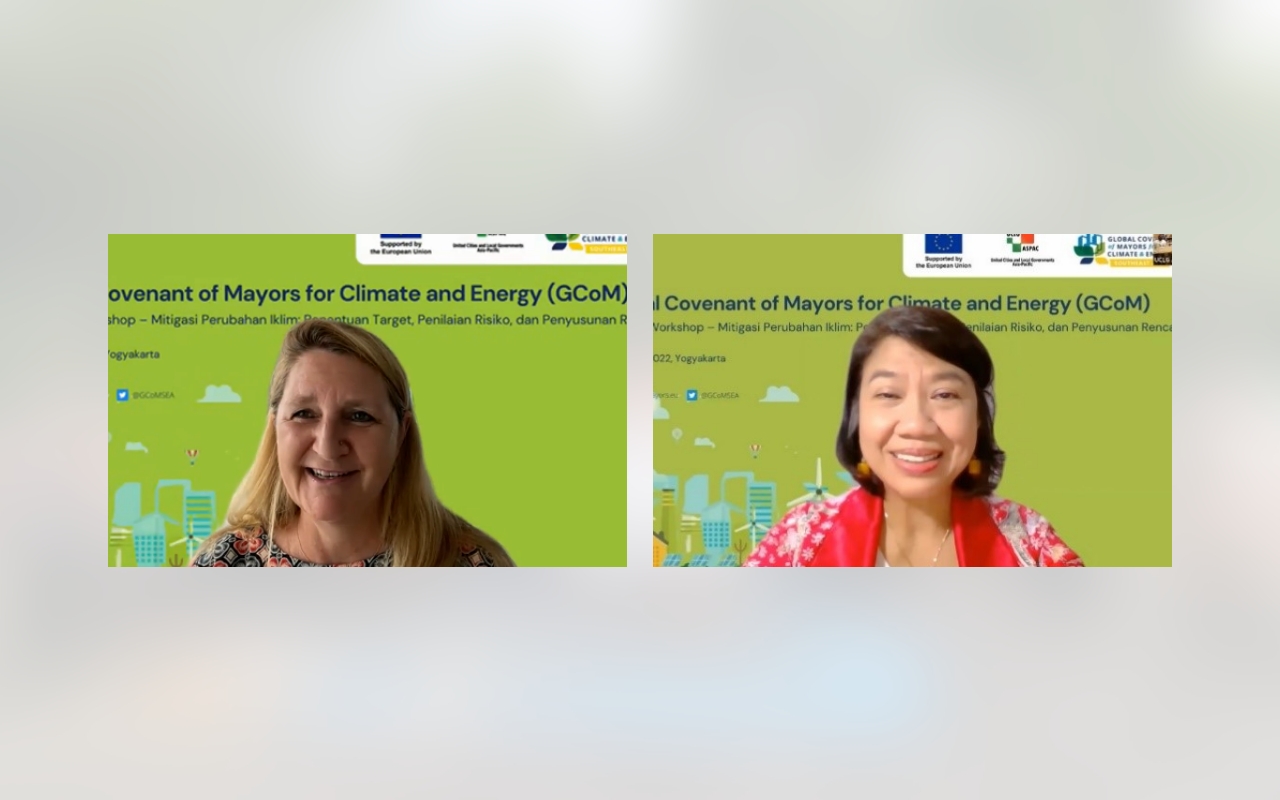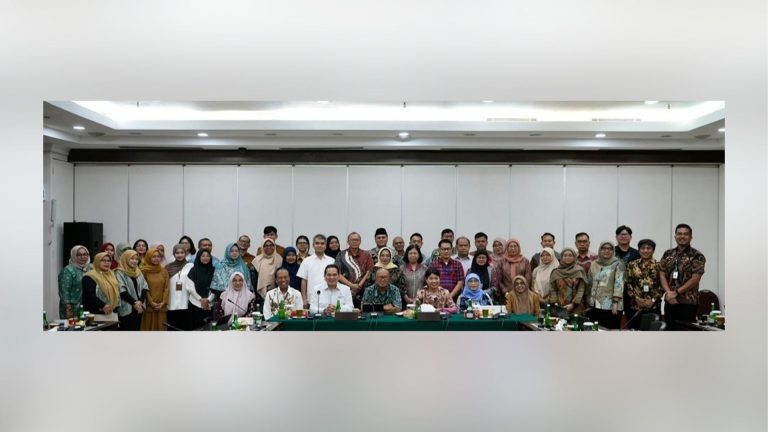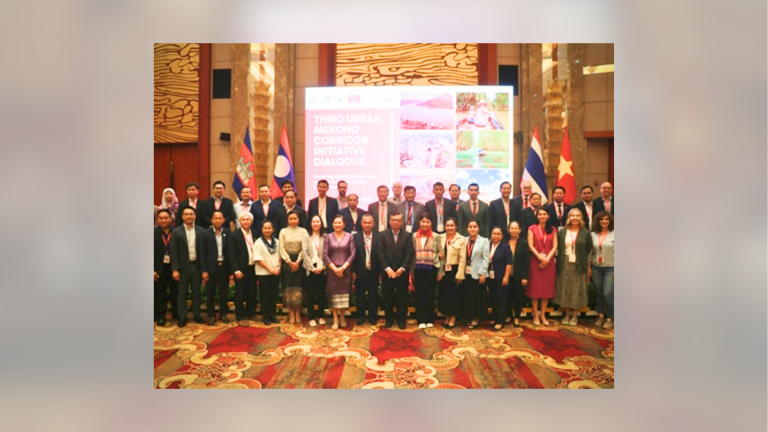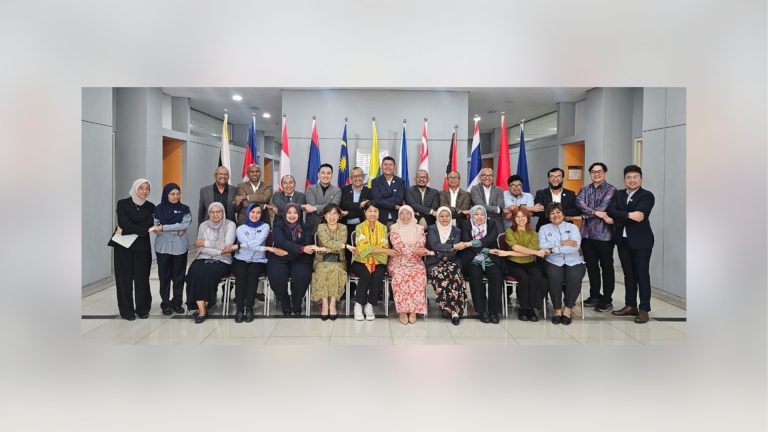7-8 March 2022 | UCLG ASPAC, the host of the Global Covenant of Mayors (GCoM) Southeast Asia (SEA) Secretariat, collaborated with Yogyakarta City Government, one of UCLG ASPAC active members, in conducting a two-day national training on climate change mitigation to spread the knowledge and reach out more cities and local governments to join hands in delaying or reducing climate impacts.
The event was conducted in the Phoenix Hotel, Yogyakarta City, on a hybrid mode and attended by 43 participants from 21 local governments in Indonesia, particularly representatives from the Development Planning Agency and Environment Department. The Vice Mayor of Yogyakarta Mr. Heroe Poerwadi was present at the venue to officially open the national training.
Dr. Bernadia Irawati Tjandradewi (Secretary General of UCLG ASPAC) and Ms. Henriette Faergemann (First Counsellor – Environment, Climate Action, ICT of the EU Delegation to Indonesia and Brunei Darussalam) delivered their opening remarks virtually. Emphasising the role of cities in climate actions, Ms. Faergemann stated, “There is no way we can achieve our targets unless cities are very much involved. That’s why I’m really happy we have 21 cities that are part of the GCoM Asia Project here.”
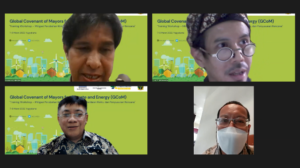 The event proceeded to a panel discussion bringing up a topic, “State of the Art of Energy and Climate Sectors in Indonesia.” The discussion was moderated by Mr. Kunto Bimaji of the Ministry of Home Affairs with three panellists from different ministries: Mr. Medrilzam of the National Development Planning Agency, Mr. Irawan Asaad of the Ministry of Environment and Forestry, and Mr. Joko Tri Haryanto of the Ministry of Finance. The discussion highlighted the importance of communication between stakeholders to mainstream climate-related projects into the development planning documents, the importance of correct and agreed upon GHG inventory calculation, and the opportunity to explore other financing options for climate-related projects.
The event proceeded to a panel discussion bringing up a topic, “State of the Art of Energy and Climate Sectors in Indonesia.” The discussion was moderated by Mr. Kunto Bimaji of the Ministry of Home Affairs with three panellists from different ministries: Mr. Medrilzam of the National Development Planning Agency, Mr. Irawan Asaad of the Ministry of Environment and Forestry, and Mr. Joko Tri Haryanto of the Ministry of Finance. The discussion highlighted the importance of communication between stakeholders to mainstream climate-related projects into the development planning documents, the importance of correct and agreed upon GHG inventory calculation, and the opportunity to explore other financing options for climate-related projects.
The participants learned from the Centre for Climate Risk and Opportunity Management in Southeast Asia Pacific (CCROM-SEAP) IPB about Greenhouse Gas (GHG) emission formulation and GHG inventory reporting platform developed by the Ministry of Environment and Forestry, known as SIGN SMART. From Ms. Giulia Melica of the European Commission – Joint Research Centre (JRC), the participants learned the data collection and GHG emission accounting in other countries, especially Europe. While Ms. Giorgia Rambelli of the GCoM Global Secretariat presented the benefits of using or utilising the existing data provided by various stakeholders as entry points for GHG inventory, for example, Google Environment Insight Explorer and Data Portal for Cities.
The participants were divided into five groups (industry, transportation, waste and water management, buildings, and renewable energy) to share their experiences on the said topics. By the end of the session, each group presented the results of their discussion with emphasis on the importance of realising the political willingness of local leaders into strong regulations to implement sustainable projects.
The training concluded with a field visit to Yogyakarta City’s Disaster Management Agency (BPBD) and Gambiran Resilient Village (Kampung Tangguh Bencana) to learn about Yogyakarta’s best practices on climate and disaster mitigation and resilience.
Following the two-day training on climate change mitigation in Yogyakarta, UCLG ASPAC, as the GCoM SEA Secretariat, will organise similar training on climate change adaptation this coming May 2022 in Denpasar.










